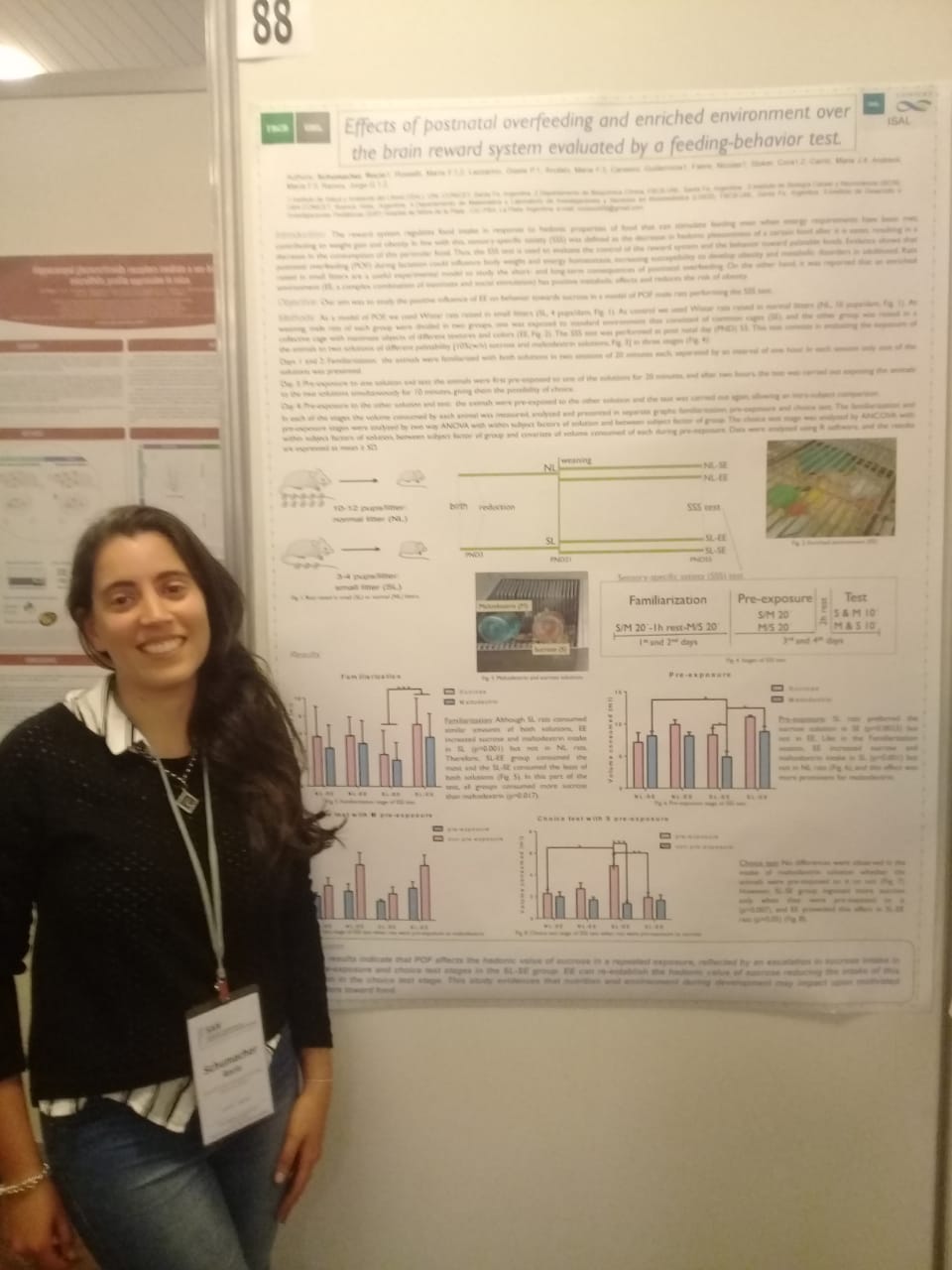Nutrition during the perinatal period is critical to determine health in life. We analyzed the effects of neonatal overfeeding on the brain control of food intake in rats at postnatal day (PND) 21 and at PND90. Male Wistar rats were raised in small litters (4 pups/dam, n=14, SL) or normal litters (10 pups/dam, n=14, NL). Half of these animals were sacrificed at PND21. The rest were fed with standard chow diet, the body weight and food intake were controlled weekly until PND90 when they were sacrificed. The brain was frozen and cut with the cryostat, the arcuate nucleus (ARC) was isolated of slice by micropunch technique. RNAm and DNA were isolated and analyzed by RT-qPCR and methylation-sensitive restriction enzymes, respectively. At PND21, SL rats showed greater body weight and characteristic features of metabolic syndrome. The ARC showed increased gene expression of the neuropeptides Pro-opiomelanocortin (POMC), Cocaine and amphetamine regulated transcript and Neuropeptide Y, Leptin and Ghrelin receptors and hypomethylation state of the POMC promoter. At PND90, SL rats restored the main alterations in body weight, neuropeptides and hormone receptors expression in ARC. Neonatal overfeeding causes early alterations in the brain circuits that control food intake, but these alterations can be restored in adulthood. This work shows the importance of developmental plasticity to restore the early changes in the central pathways involved in metabolic mal-programming.
P#237
Alterations generated by neonatal overfeeding on homeostatic control of food intake at weaning are restored in adulthood.
Rocio Schumacher
- Santa Fe,
- Argentina
- Rocio Schumacher ¹
- , Maria F. Rossetti ¹
- , Gisela P. Lazarino ³
- , Guillermina Canecini ¹
- , Nicolas Fabre ¹
- , Cora Stoker ¹
- , Maria F. Andreoli ⁴
- , Jorge G. Ramos ¹
- 1 Instituto de Salud y Ambiente del Litoral (ISAL), UNL-CONICET, Santa Fe, Argentina.
- 2 Departamento de Bioquímica Clínica, FBCB-UNL, Santa Fe, Argentina.
- 3 Center for Social and Affective Neuroscience, Department of Clinical and Experimental Medicine, Linköping University, 58x xx Linköping, Sweden.
- 4 Instituto de Desarrollo e Investigaciones Pediátricas (IDIP) Hospital de Niños de la Plata - CIC-PBA, La Plata, Argentina.

